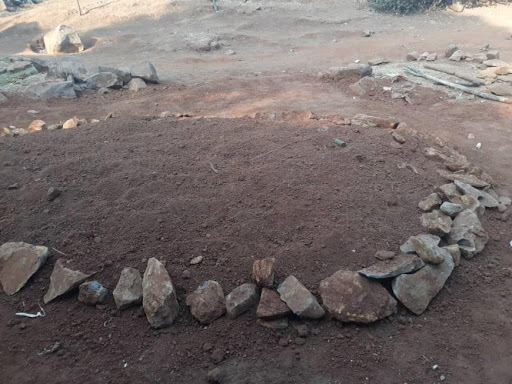Victims Yet To Get Justice Two Years After Massacre In Cameroon
Despite the admission of guilt that soldiers acting alongside a militia shot dead 21 civilians in Ngarbuh, Cameroon’s Northwest region, justice remains elusive.

Two years after some soldiers attacked a seperatist base in Ngarbuh village in Cameroon, killing 21 civilians including 13 children and a pregnant woman, victims are yet to get justice.
The massacre on Feb. 14, 2020, came amid the crisis that started in 2016 when government security forces used lethal force to stop peaceful protests by lawyers and teachers demanding linguistic reforms in Cameroon.
The Anglophones in the country have on several occasions alleged marginalisation following the use of French in courts, schools, and other public places. The issue, HumAngle understands, has roots in Cameroon’s colonial history.
It has, however, escalated into a war of secession as the Anglophone minority feel politically and economically marginalised, and that their cultural differences are ignored. The crisis has caused the death of thousands of people and displacement of over a million in Southern Cameroon
According to media reports, Cameroonian security forces and an armed militia killed 21 people two years ago. At first, the government denied the massacre, arguing that those that were killed were terrorists.
Following pressure from various human rights groups, authorities later admitted on Apr. 21, 2020, that there was a massacre and a military cover-up. An enquiry report of the government confirmed that three soldiers and a vigilante group were responsible for the incident.
The trial of the accused began on Dec. 17, 2020, before the military court in the capital, Yaounde, about 380 km from Ngarbuh, a situation making it difficult for victims’ family members to attend.
The Human Rights Watch (HRW), an international group advocating for respect for the rule of law and citizens’ rights, on Monday, Feb 14, 2022, expressed concerns that the trial of the accused which has dragged on for 14 months shows lack of efficiency in the justice system of the country.
“The lack of progress is compounded by the limited opportunity for access and participation by victims’ families, the lack of probative witnesses, and the fact that senior officers with command responsibility have not been arrested or charged. The only witnesses so far did not see the killings and claimed the victims were separatist fighters,” a statement by the group read.
Aside from this, HRW said the judiciary has failed to locate the accused vigilantes despite having the telephone number and location of at least one vigilante.
Speaking on the endless crisis in the country, the report said “as the trial goes on, Cameroonian security forces continue to commit serious crimes in the Anglophone regions, underscoring a climate of impunity that has fueled the crisis in Cameroon’s Anglophone regions
“Armed separatist groups have also committed abuses, including killings, kidnappings, torture, and widespread attacks on education. This highlights the urgent need for effective investigations that meet international standards into all serious abuses.”
Aside from the Ngarbuh village incident, the military has on different occasions attacked armless civilians in a bid to ‘tackle’ insecurity in Cameroon.
On Jan. 10, 2021, soldiers killed nine civilians in the same place. A year before then, the village of Ndoh in the South-West region was also attacked by the military.
In reaction to all of these, Fabien Offner, Amnesty International Lake Chad Researcher said “it’s time for the African Commission on Human and Peoples’ Rights to establish and carry out a fact-finding mission into all allegations of human rights violations and abuses committed in the Anglophone regions since 2016.”
Support Our Journalism
There are millions of ordinary people affected by conflict in Africa whose stories are missing in the mainstream media. HumAngle is determined to tell those challenging and under-reported stories, hoping that the people impacted by these conflicts will find the safety and security they deserve.
To ensure that we continue to provide public service coverage, we have a small favour to ask you. We want you to be part of our journalistic endeavour by contributing a token to us.
Your donation will further promote a robust, free, and independent media.
Donate HereStay Closer To The Stories That Matter




